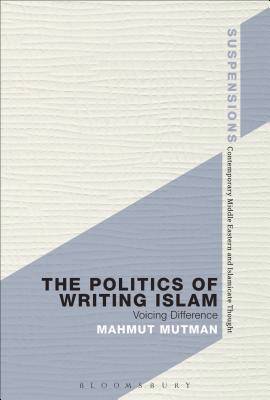
- Afhalen na 1 uur in een winkel met voorraad
- Gratis thuislevering in België vanaf € 30
- Ruim aanbod met 7 miljoen producten
- Afhalen na 1 uur in een winkel met voorraad
- Gratis thuislevering in België vanaf € 30
- Ruim aanbod met 7 miljoen producten
Zoeken
Omschrijving
The Politics of Writing Islam provides a much-needed critique of existing forms of studying, writing and representing Islam in the West. Through critiquing ethnographic, literary, critical, psychoanalytic and theological discourses, the author reveals the problematic underlying cultural and theoretical presuppositions. Mutman demonstrates how their approach reflects the socially, politically and economically unequal relationship between the West and Islam.
While offering a critical insight into concepts such as writing, power, post-colonialism, difference and otherness on a theoretical level, Mutman reveals a different perspective on Islam by emphasizing its living, everyday and embodied aspects in dynamic relation with the outside world - in contrast to the stereotyped authoritarian and backward religion characterized by an omnipotent God. Throughout, Mutman develops an approach to culture as an embodied, everyday, living and ever changing practice. He argues that Islam should be perceived precisely in this way, that is, as an open, heterogeneous, interpretive, multiple and worldly belief system within the Abrahamic tradition of ethical monotheism, and as one that is contested within as well as outside its 'own' culture.Specificaties
Betrokkenen
- Auteur(s):
- Uitgeverij:
Inhoud
- Aantal bladzijden:
- 272
- Taal:
- Engels
- Reeks:
Eigenschappen
- Productcode (EAN):
- 9781474237611
- Verschijningsdatum:
- 21/05/2015
- Uitvoering:
- Paperback
- Formaat:
- Trade paperback (VS)
- Afmetingen:
- 156 mm x 234 mm
- Gewicht:
- 385 g

Alleen bij Standaard Boekhandel
+ 179 punten op je klantenkaart van Standaard Boekhandel
Beoordelingen
We publiceren alleen reviews die voldoen aan de voorwaarden voor reviews. Bekijk onze voorwaarden voor reviews.







